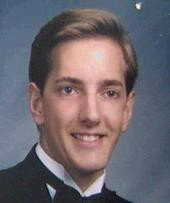If there's one thing to glean about the games this weekend in each Conference Final, it's that talent alone and past performance really don't have anything to do with future success.
In the Buffalo-Ottawa series, the Sabres basically got lucky in Game 4, catching the Sens off guard with the goal nine seconds in. I don't know if being at home naturally slipped Buffalo into a comfort zone, expecting the crowd and the home ice to be what carried them to victory, but it didn't work in Game 5. For the fourth time in the series, Buffalo was out-worked and out-hustled after going up 1-0 early in the game. Of course, it being an elimination contest, you'd have to expect the burst of energy which preceded the Sabres' tying goal, but where was the urgency after that? In overtime, the Senators threw a blanket over Buffalo, then capitalized on a lucky break - the fact that three Sabres defenders were within 10 feet of Daniel Alfredsson yet barely touched him, and one was used as a screen before the game-winning shot.
Aside from that, the most obvious and telling reasons that Ottawa has reached the finals, is that every player on the ice has executed his job, and even the top line is no longer afraid to work in the corners and work inside the give-and-take of playoff punishment.
Yesterday's Ducks-Red Wings game was a prime example of how working to make your own luck can turn the tide of a series. The Wings held a 34-18 advantage in shots after 60 minutes of play, and for most of the contest were seen buzzing around their opponents in all three zones. That said, there was little finishing ability and a dearth of quality scoring chances for Detroit - and the goal they did score was aided by a tussle going on in the crease which distracted Jean-Sebastien Giguere just enough. I got the sense that all Anaheim was doing, and needed to do, was lay in wait for the one or two chances they had to score, which is smart considering Joe Louis Arena can be an intimidating place to play deep into a playoff round. They lucked out in that pretty much their only two opportunities came so close to each other late in the game and then early in overtime. Still, it takes a cool hand to make it all work, and it's also no shock that Scott Niedermayer and Teemu Selanne were the veterans who showed stones of solid brass to finish off their plays.
Anaheim would be wise to go for broke in Game 6 at home, because the worst that can happen is a Game 7 in Detroit, and the Ducks have already shown mettle in winning a pair of overtime games at the Joe.
And speaking of breaks...My colleague at work already broached the subject with a good column, but I'm still mystified as to why NBC would switch over from the Sens-Sabres a full 70 minutes before the Preakness? Let's face facts, the game was going to be pre-empted or switched or whatever, because the gambling community in this country has it in for horses welll ahead of hockey. I'll even grant you that the space between the end of regulation and the start of overtime is as good a break as any, but it was a mistake to send the game to Versus so soon.
Even with a bit of rudimentary math, NBC would have been safe to keep the game on air before the race. The third period concluded at 4:50 pm, and intermission lasts no longer than 15 minutes. Even if NBC showed a full overtime without anyone scoring to decide the game a 20-minute playoff period lasts no longer than 35 minutes. They could have been safe to switch after a first OT somewhere around 5:40 pm, and have only 20 minutes of useless pre-game before the race. All of that was rendered moot anyhow, since the game concluded midway through OT.
The fact that not everybody in the country was able to see overtime because it was not an automatic switch to Versus? Nothing short of a complete travesty.
Coming off the aborted 2004-2005 season, I finally caved and realized the only way for the league to thrive was to make it the best fourth-tier sport in America. I wanted contraction, four divisions, losing teams making the playoffs to make it easier for the top teams to advance, and a television contract like the one currently in use. I was willing to accept the actual TV deal as a joke, but the internal decisions which govern who gets to see what games when is what will prove to be the death knell for the sport.
Monday, May 21, 2007
Subscribe to:
Post Comments (Atom)

No comments:
Post a Comment